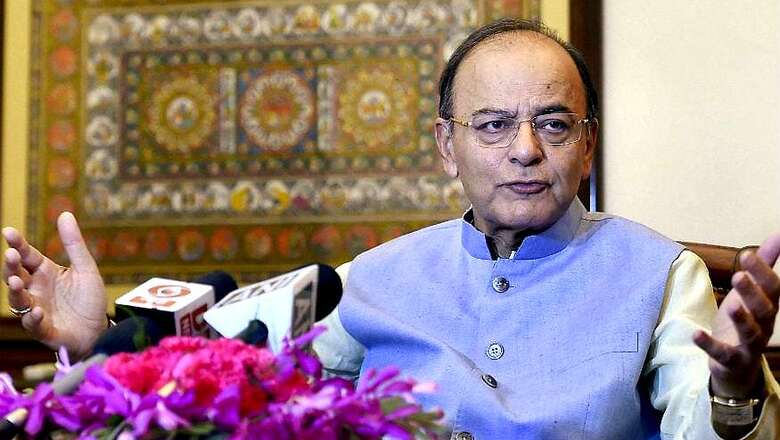
views
New Delhi: In what will strengthen the Centre’s revenue collections, experts are of the opinion that the government is likely to do away with capital gains tax exemption in the upcoming Union Budget to be presented on February 1.
At the time of sale of any long term capital asset, the gains are usually high and are currently taxed at 20%; the resultant figure, which is to be paid as tax, computes to be a very large amount liable to be paid as long term capital gain tax.
However, the government provides for an exemption if the taxpayer reinvests the amount in certain specified forms of investments and can thereby save long term capital gain tax.
Also, short-term capital gains (STCG) from sale of shares within a year are currently taxed at 15 percent while the long term capital gains (LTCG) from sale of shares after one year are tax free.
“The government will most likely do away with capital gain tax exemption. It will no doubt dent the equity market but will work in favour of the revenues. The government has been looking to do for some time now. The meeting of economists with the PM has suggested this as well,” said Anil Gupta, Secretary, Vitta Salahkar Samiti, an RSS-inspired group of chartered accountants .
At a meeting with Prime Minister Narendra Modi on January 9 in Niti Aayog, several economists were of the opinion that the government should increase tax incidence on gains in the equity market, which currently enjoys the lowest tax rate sources aware of the discussions said.
Talking at a SEBI event on December 24, 2016, Modi had highlighted the government’s agenda to raise taxes for the stock market.
“Those who profit from financial markets must make a fair contribution to nation-building through taxes. For various reasons, the contribution of tax from those who make money on the markets has been low. To some extent, it may be due to illegal activities and fraud. To stop this, SEBI has to be extremely vigilant. To some extent, the low contribution of taxes may also be due to the structure of our tax laws,” said Modi.
“Low or zero tax rate is given to certain types of financial income. I call upon you to think about the contribution of market participants to the exchequer. We should consider methods for increasing it in a fair, efficient and transparent way. Earlier, there was a feeling that some investors were getting an unfair deal by using certain tax treaties. As you know, those treaties have been amended by this government. Now it is time to re-think and come up with a good design which is simple and transparent, but also fair and progressive,” Modi had added.
Former Reserve Bank of India governor, Bimal Jalan told News18 that the government will profit itself if it does away with the exemption. “The upcoming Budget will most probably abolish the tax exemption.”




















Comments
0 comment